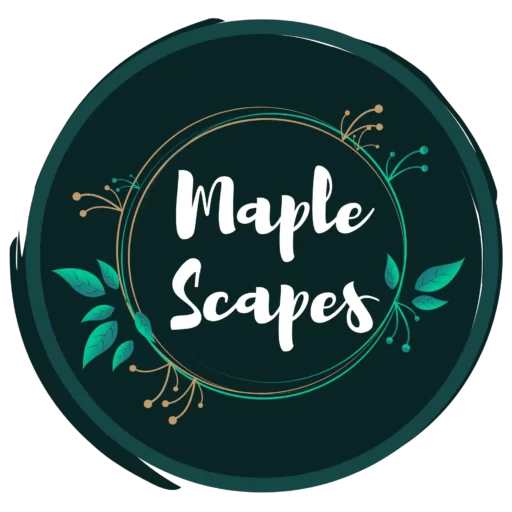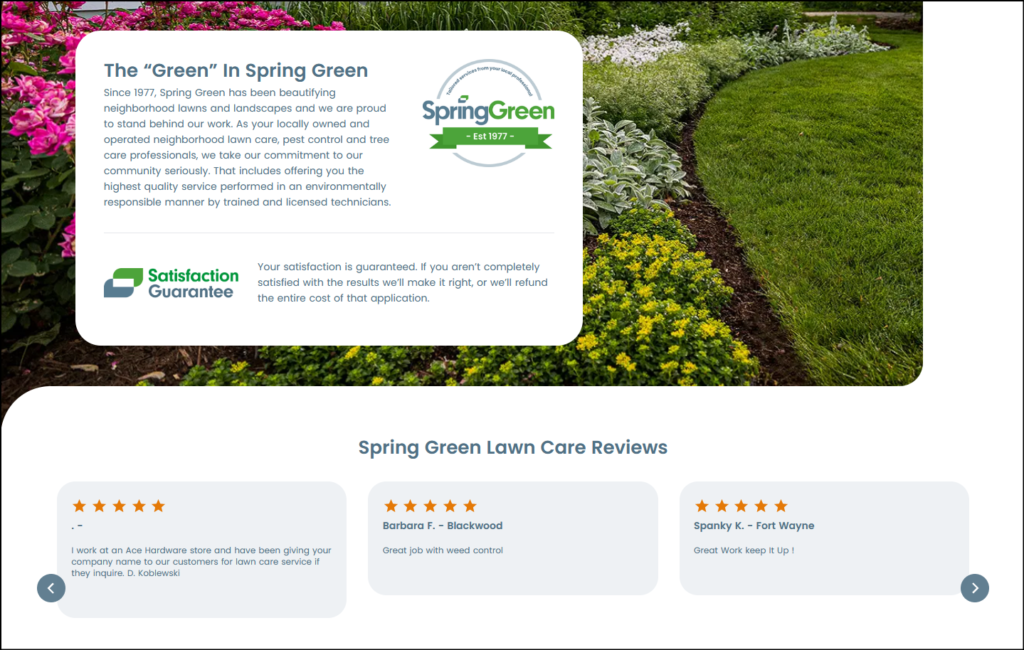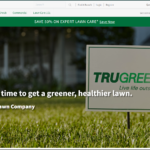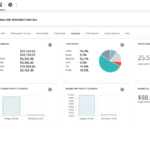Looking for website marketing strategies for landscaping businesses? You’re at the right place!
If you run a landscaping business, you know how important it is to have a website that showcases your work and attracts new customers.
But how do you know if your website is making an impact to grow your landscaping business?
Here are some website strategies for landscaping businesses that you can implement to boost your online presence and grow your revenue.
What is website marketing?
Like you improve and promote your landscaping business daily, landscaper website marketing is nothing more than improving and promoting your website to increase your brand’s visibility and generate landscaping leads.
While there are several reasons why you need a website for your business, you need website marketing strategies to effectively bring traffic to your website, engage, nurture your prospects, and finally convert them to your customers.
Why do landscapers need website marketing strategies?
If you are in the landscaping industry, you need website strategies to:
- Build a brand that people trust
- Convert visitors to customers
- Generate landscaping leads from the website
- Be visible to new audiences that do not know you exist
- Provide support to your existing customers
- Establish yourself as an online authority in the landscaping industry
- Publish important information from your customers that can be accessed from anywhere. Examples would include your contact information, information about your company, past projects, where you serve, mission and vision, service schedules, etc.
Now that you have a good reason to create your landscaping website, you should ensure you get a good return on this investment.
In this resource, you’ll find strategies you can use to market your website. All of the strategies are focused on achieving the benefits mentioned above.
Website marketing strategies for landscaping business growth
If you do not have a website yet, you can read this post to learn how to create a landscaping website that outcompetes everyone in your area.
If you’ve got a website or are developing one, read all the strategies to help you get the most out of it.
Create dedicated Ad landing pages to get landscaping leads
Creating dedicated Ad (or PPC) landing pages helps you generate landscaping leads from the website.
An Ad landing page is a standalone page on your website where your ideal customers land after interacting with your online Ad.

PPC pages are designed to direct the visitor to perform a specific action. That action could be to submit information, subscribe to a service, follow you for updates, or more.
This generally leads to you getting a landscaping lead from your website (since your PPC page lives on your website).

They are designed to have a higher conversion rate than other standard landing pages on your website.
You’ll find that PPC pages do not have multiple links, or navigation items, and are not information-heavy.
They are optimized so that there is minimum friction and your visitor does not get distracted by anything and completes your desired action (filling out a lead form).
Use a chat widget to engage visitors and answer their queries
Using chatbots or chat widgets helps you:
- Build a brand that people trust
- Provide support to your existing customers
- Convert visitors to customers
A chat widget on a landscaping website is a simple widget in the corner of the website that people can use to connect with customer support or get answers to their queries.
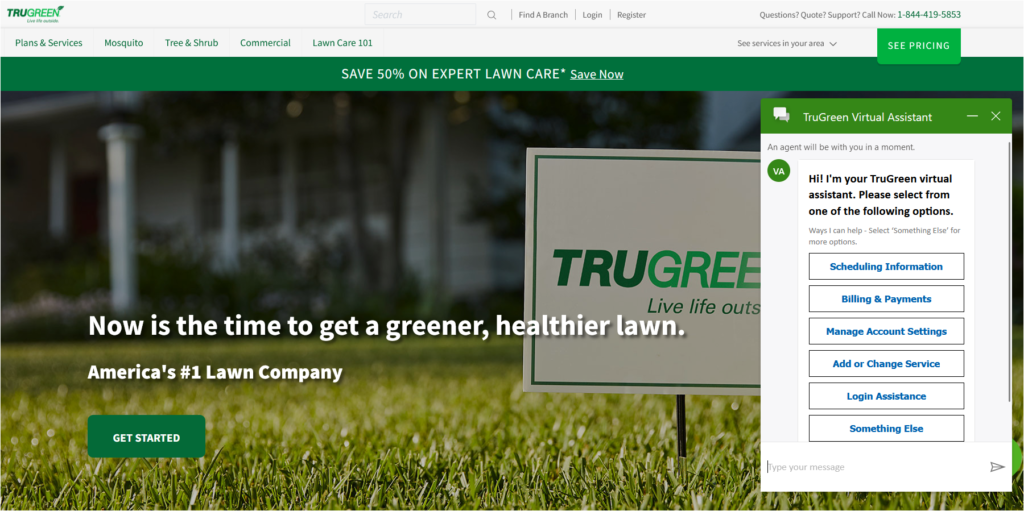
A chat widget can help you build a brand people trust because you can always be available and within their reach to reply.
If a visitor is confused, you can configure the chat widget to expand and help the visitor find what they are looking for.
A chat widget helps convert visitors to customers because you can effectively direct visitors or resolve their queries.
It gives you greater control over the prospects who would have been just visitors to your website.
It helps with engagement because the widget animation catches a visitor’s eye, and it can turn an uninterested visitor into someone who is not actively thinking about your brand and what they can get from you.
There are many free chat widget providers (e.g., Tawkto, Hubspot). But these are self-managed versions. You or your admin must keep the app open to answer any queries.
If you do not answer a query or resolve an issue, the visitor might get frustrated, and your brand reputation will suffer. An alternative is to use chat support agents, at least during business hours, who can reply on your behalf.
Use exit-intent popups to capture leads before they leave your website
Exit intent popups on your landscaping website will help with generating leads from the website.
An exit intent popup is a website popup that triggers when visitors are about to leave your website.
With the exit intent popup, you get another chance at capturing that lead one last time.
Do not overdo it. Sometimes, people like to move their mouse over the whole website just as they consume content.
An exit intent popup configured to appear on the smallest hints can frustrate a visitor.
Ensure your exit intent popup does not appear once a person has filled in their information on your lead capture form.
Retarget ads to convert your website visitors
Retargeting ads to your website visitors helps you convert visitors to customers and generate landscaping leads from the website.
Repetition is a core concept in marketing.
Repetition builds familiarity and trust. And the more you remain on top of a prospect’s mind, the more likely they will buy from you.
With retargeting, you make sure you are on your prospect’s mind.
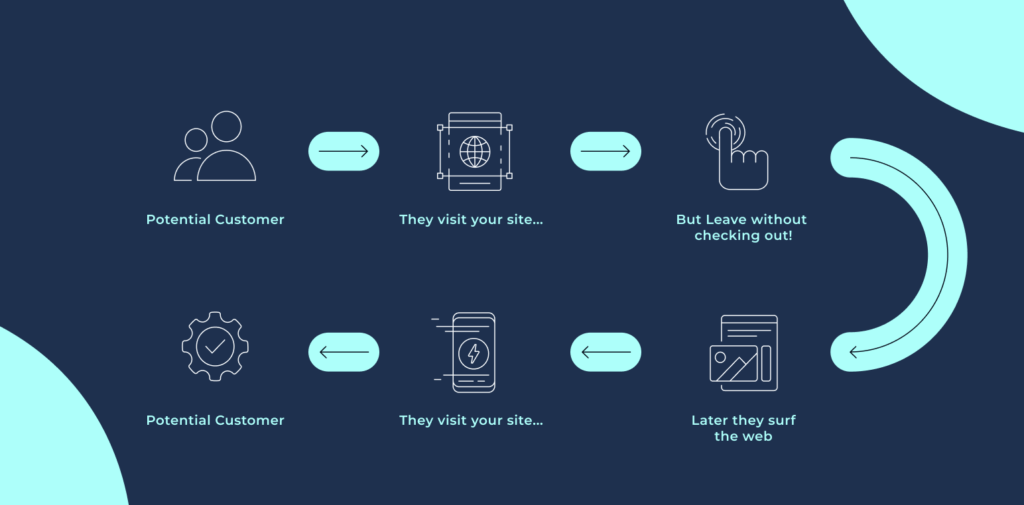
Why retarget to your website visitors?
When a person has visited your website once, they’ll quickly remember you the next time they see your ad.
There are several ways you can do retargeting:
- Show them search, display, or social ads
- Email them if you have their email addresses.
- Be visible at the most common touchpoints of the user journey paths.
One quick and easy way to achieve this is to use your landscaping website to create an audience in Google Analytics 4 and then use that audience in Google ads to show your retargeted ads.
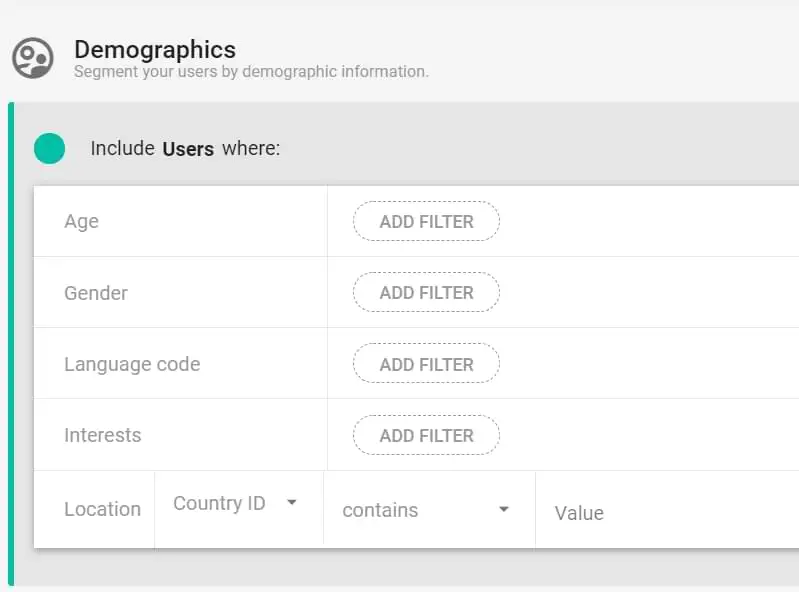
Refine your audience to ensure you spend money on ads for the right prospects.
You can create an audience using an event or a simple logic for a filter.
For example: Create a custom audience in GA4 if the visitor is from your defined service area, has stayed on the page for at least 10 seconds, and has scrolled at least 50% of a page on your website.
Additionally, you can also use the Facebook pixel for your retargeting campaigns.
Keep your retargeted ad consistent with your overall branding. Remember that the visual elements that make up your brand’s identity should be consistent across all your messaging. It helps in brand recognition.
Publish content as lead magnets and use a lead capture form
Lead magnets help you initiate a conversation with your prospects and capture leads from your landscaping website.
A landscaping lead magnet is an information-rich and helpful resource that can be given away in exchange for contact details.
Examples of high-performing lead magnets:
- A comprehensive guide
- e-book
- contractor playbook
- Industry trend reports
- Templates
For a lead magnet to work, you must provide insights only an expert can provide. Do not try to reuse and repackage the same widely available and commonly known information.
The content should have an added value and should be helpful to the person receiving it.
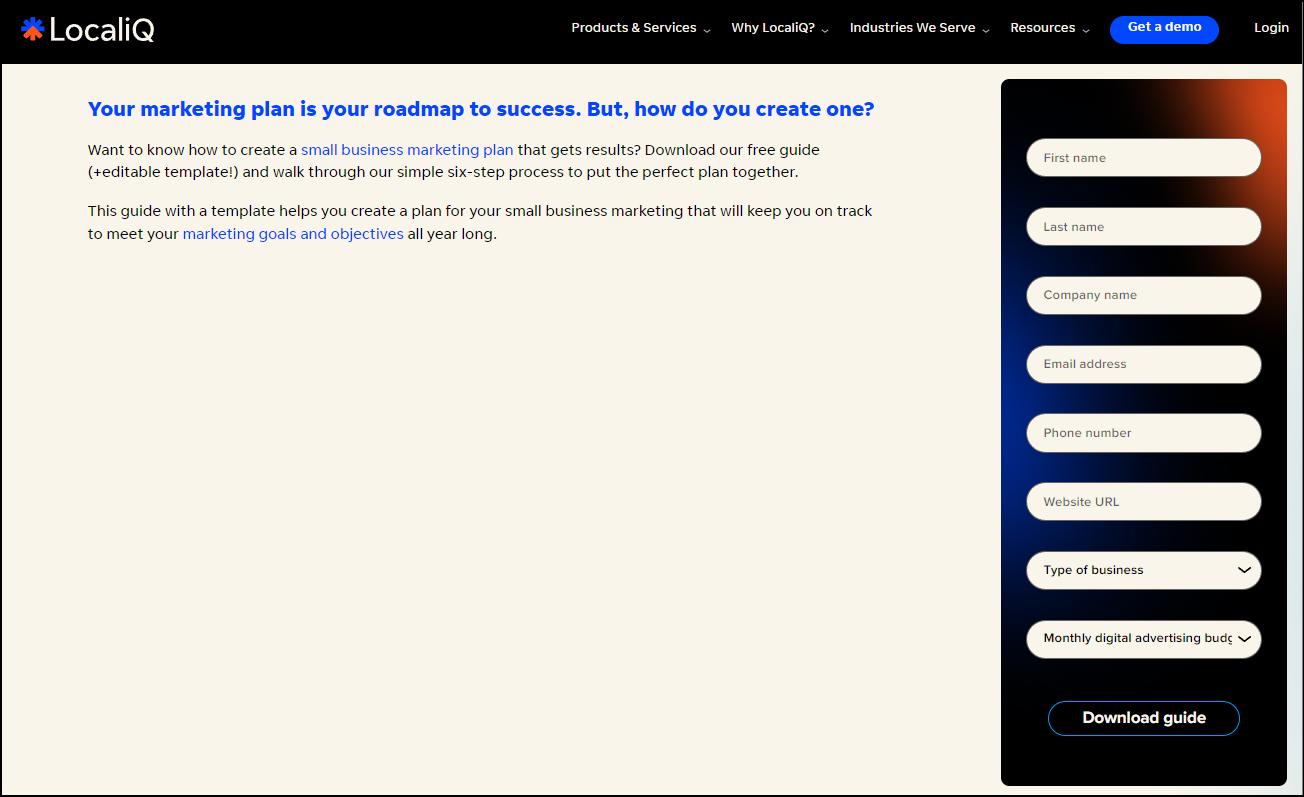
However, a lead magnet is only a type of content. How does a landscaping website help?
Create a contact form on your landscape website’s lead magnet landing page.
Once your prospects arrive on this page expecting the super helpful content, they can fill in their contact details and download or read the lead magnet content.
Use social proof strategically
Use social proof to build a brand that people trust.
Social proof is a form of external validation that helps build trust and value for your brand.
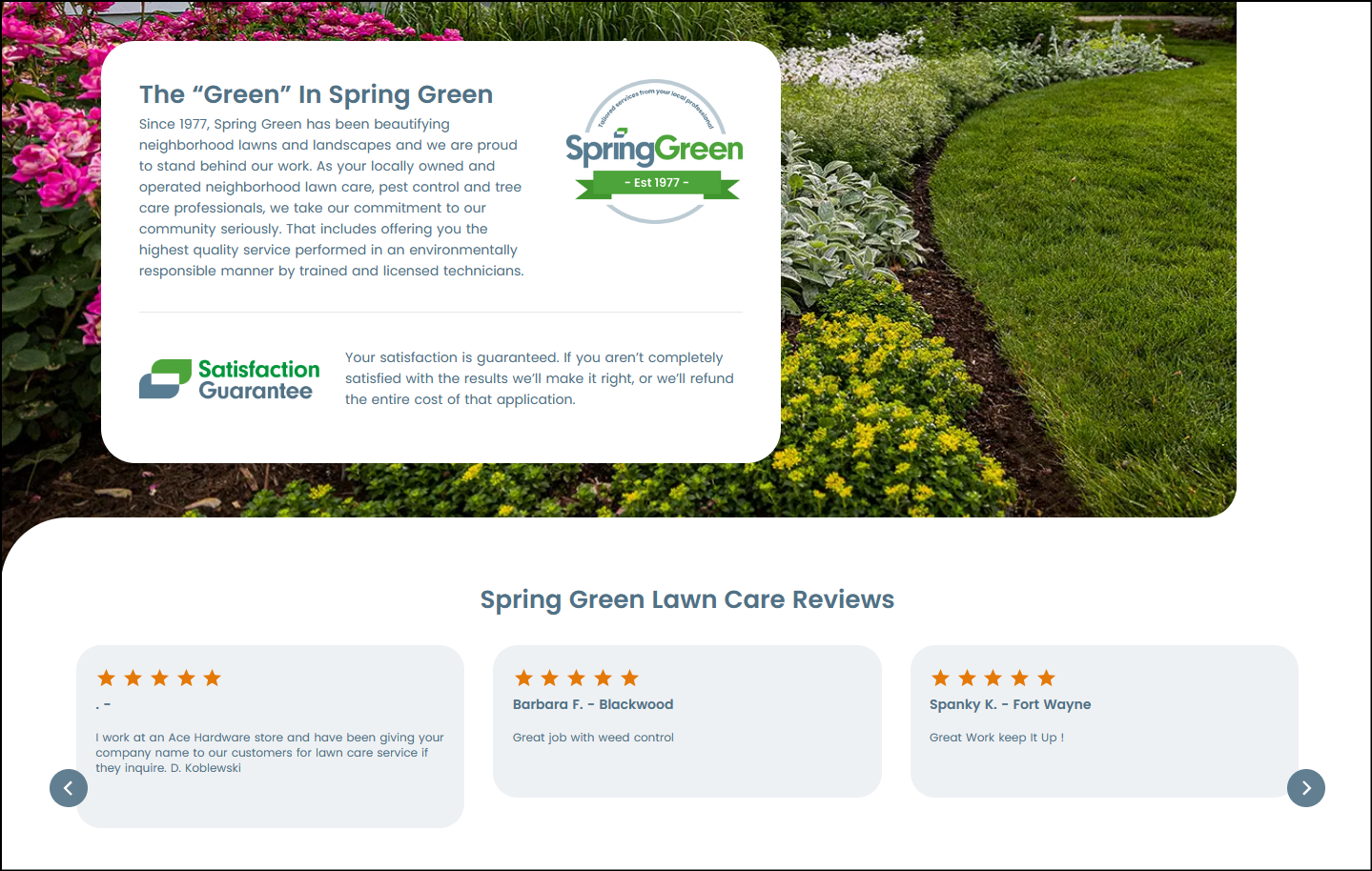
Examples of social proof that you can put on your website:
- User reviews: You can get reviews from happy customers even after a mowing job. Send them a link to your Google business profile or a review site. You can source these reviews on your website.
- Endorsements: Get a local celebrity in your area to endorse your service. An environment activist who was recently in the local paper would cost you almost nothing and do a good job of endorsing your brand for landscaping services.
- Media mentions: If you’ve done PR or been mentioned in the press, show that you were featured on that medium.
- Awards: Any landscaping awards you’ve received in the past few years.
- Industry associations: Being associated with Landscaping industry associations is suitable social proof for your website.
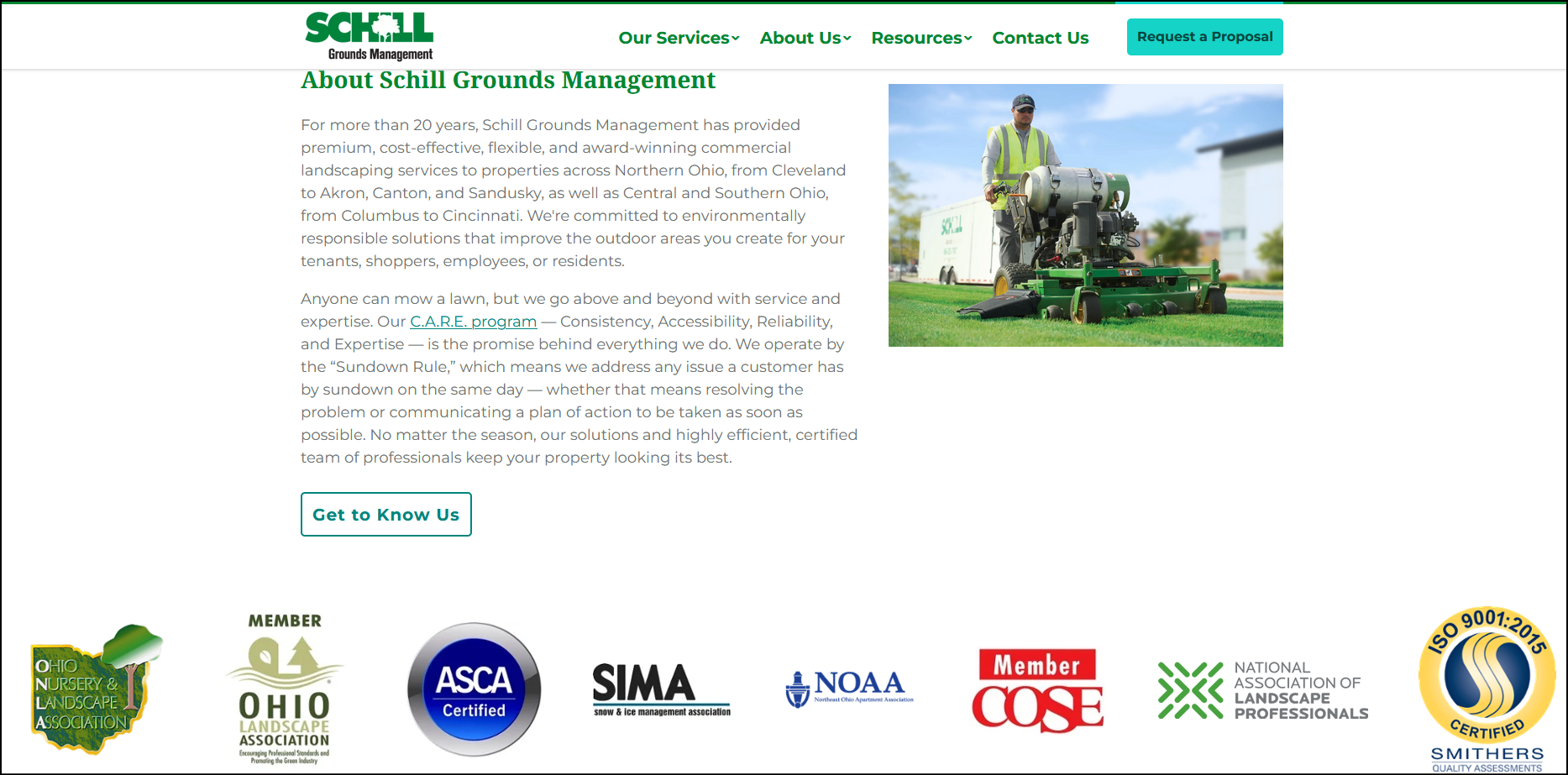
Publish helpful content for your audience
Publishing helpful content is a widely used website marketing strategy. It helps in:
- Establish yourself as an online authority in the landscaping industry
- Be visible to new audiences that do not know you exist yet
- Build a brand that people trust
Helpful content is articles, videos, podcasts, and whitepapers for your audience that are looking to solve a problem.

How does publishing a blog help?
Publishing helpful content helps you get visibility on Google & Bing searches.
When you write industry-leading expert content, others also quote it online, giving you additional visibility and thought authority.
Google’s mission is to organize the world’s information and present it in a relevant and helpful way.
When you create helpful content for your landscaping audience, Google stores your blog page, ranks it against other pages with similar content, and then serves it to your audience when they search for the solution to their problem.
When you appear at the top positions and people land on your blog, they not only start to trust you for solutions but also start to see you as an authority or an expert in the industry.
There are multiple content formats that you can create for your visitors.
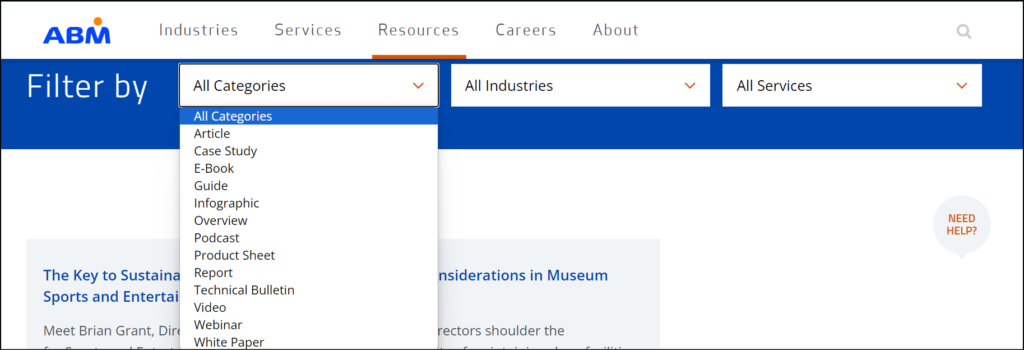
The format you choose depends on the problem you’re resolving for them, the topic and its complexity, and the involved parties to help resolve it.
- Blogs
- Case studies
- Guides
- Testimonials
- Press releases
- Webinars
- Workshops
- Podcasts
- Industry news
- Industry reports
- Whitepapers
- Research reports
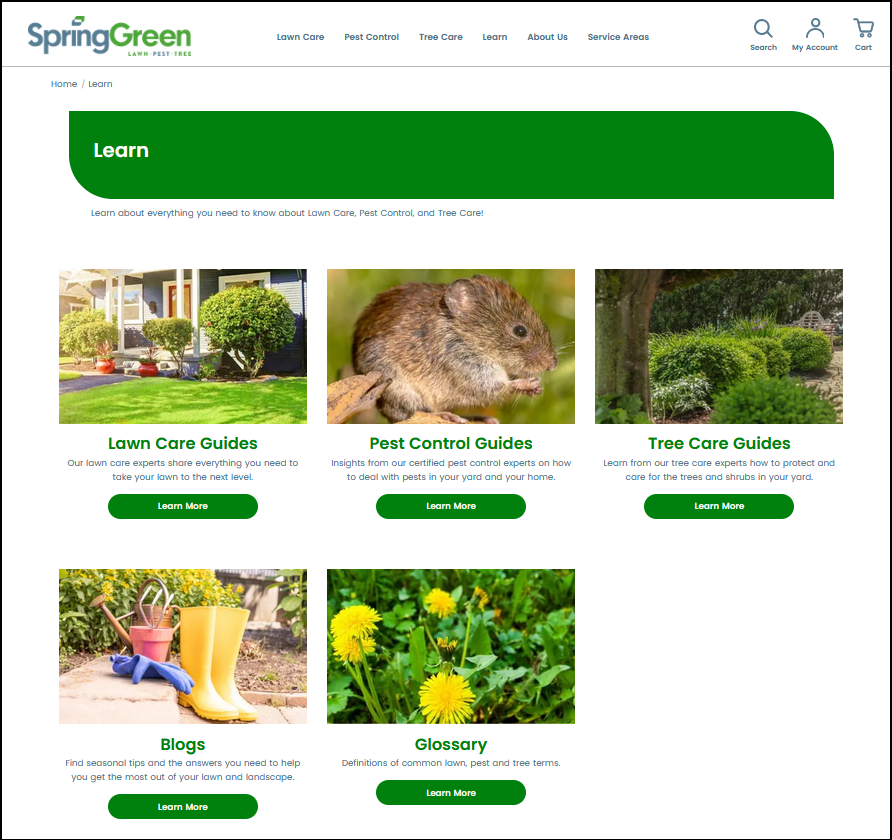
Some blog topics and ideas for a landscaping audience:
- Tree care guides
- Pest management-related articles
- Increase property value with landscaping tips
- Lawn maintenance tips, schedules, and costs.
- Commercial landscaping articles
- How to use lawn equipment properly
- Plant care
- Landscaping design ideas
- Tips for property managers
- Lawn irrigation-related help articles
- Soil types, plants, trees, and shrubs suitable for hardiness zones.
- Snow removal tips
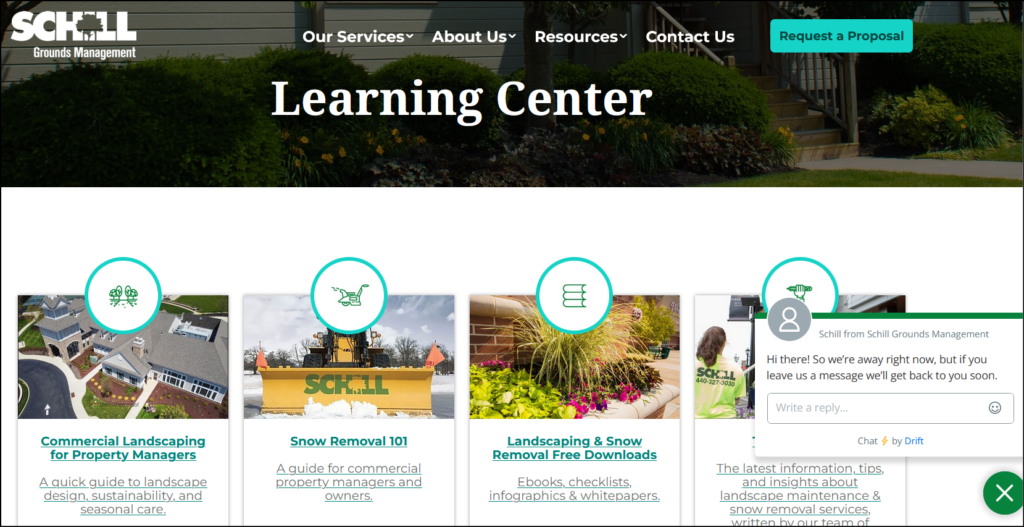
While you get your content created in multiple formats, make sure it is expert-reviewed and has additional value over and above what’s already on the internet.
If you think the internet already has everything, think again. Your location-specific unique experience and knowledge of specific topics might be helpful for the local audience.
Utilize website analytics to analyze and optimize your website
Utilizing analytics and session recordings helps you increase your conversion rate of visitors to leads and then customers.
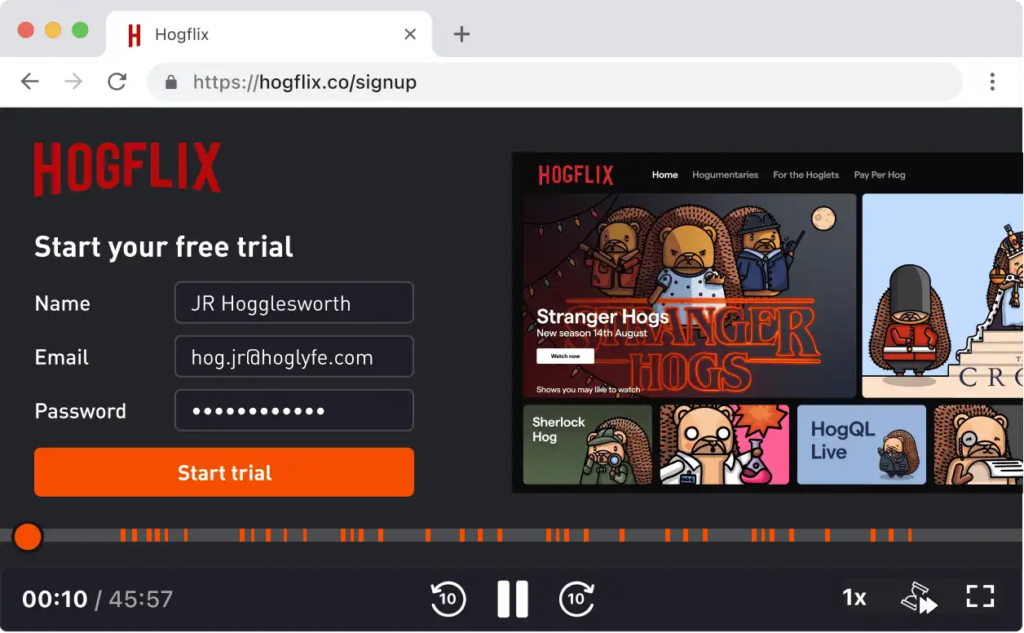
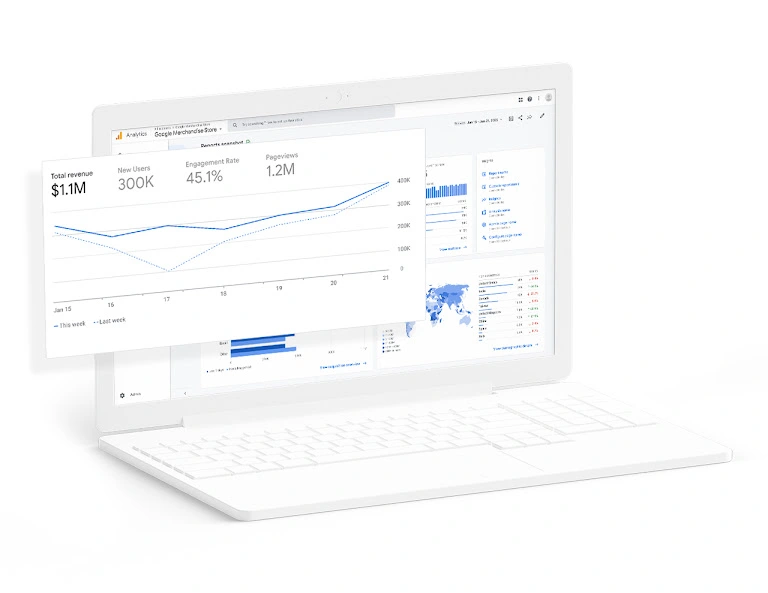
Utilizing website analytics is an evergreen website marketing strategy.
When you examine user behavior on your site, you can use the insights to improve your website and drive more conversions.
One example is the bounce rate optimization technique. By examining session replays, heat maps, and visitors’ events on a page, you can derive insights into where the user is bouncing off.
With these, you can revamp your content, design, and website folds to make the content more engaging and keep visitors on your site longer.
Another example is drop-off conversion path analysis. You look at the user journey using Google Analytics or Posthog and get insights on where the users drop off before purchasing on your site.
You then work on conversion rate optimization (reducing friction points, minimizing distractions, doing A/B testing, optimizing CTA, and more) to improve the conversions of visitors on your landscaping website.
Do SEO to increase website visitors from Google and Bing
SEO helps you to be visible to new audiences and generate landscaping leads from the website.
SEO for landscapers involves optimizing your website for users and search engines to gain visibility and relevance. It helps attract potential customers looking for landscaping services or related information in your service area.
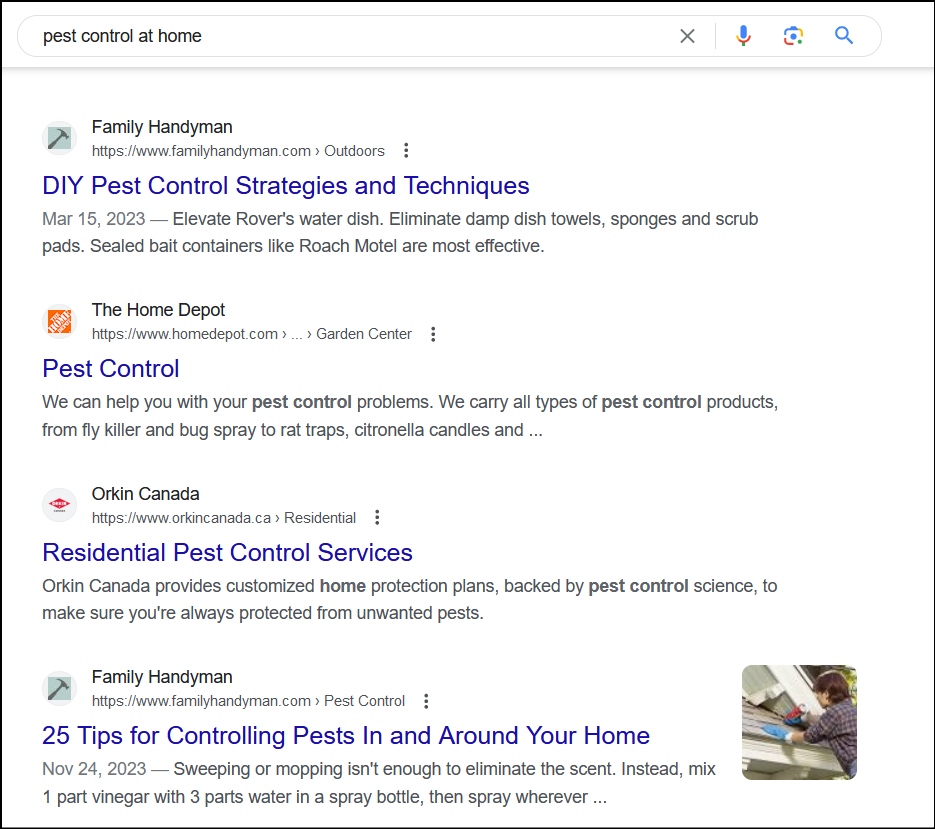
Some SEO strategies to help market your landscaping website:
- Submit your website for indexing on Google search.
- Optimize your content(Text and images) with SEO landscaper keywords.
- Build authority and improve rankings by earning backlinks from related authoritative sites.
- Help people with landscaping-related problems on Reddit, Quora, gardening forums, Facebook groups, LinkedIn groups, online local communities, and homeowners’ WhatsApp groups.
- Create a Google business profile and register your company on service directories.
- Get customer reviews on review sites that rank for keywords related to your services to build social proof.
Other common strategies to market your landscaping website
- Optimize your page speed, website usability, responsiveness and overall user experience.
- Promote your new pages on GMB, socials and emails.
- Show authorship for any article content that goes live on your website. This helps build credibility and signals to search engines that a relevant expert writes the content.
- Publish new pages for better discovery. If you have an affiliate program as another channel for sales, how would people know? You need a website page with all the information you can give.
These website strategies for landscaping businesses can help you create a powerful online presence and grow your customer base.
